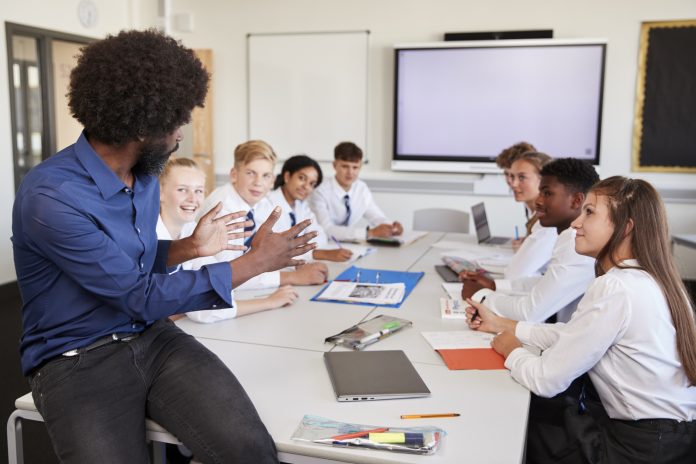Andrea Welter, assistant head teacher from Pheasey Park Primary School, explains why successful catch-up programmes in education need to focus on closing the literacy gap
Children’s reading achievement has been hit hard by the pandemic and the most significant impact has been seen in younger children, a new report by Juniper Education has suggested.
The figures state that in autumn 2019, 82% of Year 3 pupils achieved age related expectations in reading. Two years later, this number had dropped to just 68%.
As schools continue to launch catch-up schemes and targeted programmes to help their pupils recover the learning they have missed due to COVID, it is more important than ever to ensure literacy is a priority.
The broader picture of education includes strong literacy skills
It is essential for schools to find effective ways to fortify children’s reading skills as literacy is at the heart of every curriculum subject.
When a child can read well, they are in a better position to be able to interpret a science challenge, source information for a project on the Queen’s coronation in history and digest the terminology used to describe rock formations in geography.
With strong literacy skills pupils are much more inclined to read for the pure joy of it too. These are outcomes all schools want to achieve.
Without a firm grasp of reading, children could potentially be on the back foot right the way through their schooling. That’s why catch-up programmes designed around literacy will be so crucial for helping to address the complexity of the challenge ahead.
Uncovering the issues behind reading difficulties
One of the key tasks for schools is to identify reading difficulties but this is not always as straightforward as it may sound.
The issues children experience can often be concealed. Many pupils develop coping strategies over time that are difficult to unpick.
At Pheasey Park, we use a piece of software from Lexplore Analytics to help us uncover the specific reading issues individual children are having. The technology is designed to follow a child’s eye movements as they read. It automatically analyses how long their eyes rest on one word and how quickly the eyes move forwards and backwards across a series of words.
The results help us to get a very clear picture of which children are at risk of specific reading difficulties, such as dyslexia. This helps us to design interventions that make a difference, and we can also use the technology to measure the impact of the actions we put in place.
Considering the pastoral impact when it comes to reading difficulties
Reading difficulties not only affect children’s academic achievement. They can also have a negative impact on a child’s emotional wellbeing. So, a successful catch-up programme for literacy should always support pupils’ achievement with a focus on the pastoral aspects of learning recovery.
While it’s important to understand where pupils are in their learning and monitor the progress they are making, schools need to find ways to assess children without piling on the pressure and technology can help here too.
An on-screen activity or digital quiz is often more enjoyable for children to complete than a typical written test. When assessment is fun, there is no ‘fear of the big test’ that could potentially skew the results. Schools are therefore more likely to get a more accurate understanding of a child’s true ability.
In our school, some of the screening technology we use is so enjoyable, our pupils have been known to ask us if they can repeat the testing process more than once. Technology-based testing can also save time for teachers by reducing administration, allowing them to focus on planning and delivering activities that help their pupils to achieve their full potential.
Whether catch-up programmes are shaped around tutoring, extra-curricular learning activities or lunch time revision clubs, schools that place literacy at the front and centre of everything they do will be in a strong position to ensure every child gets the support they need to succeed.











